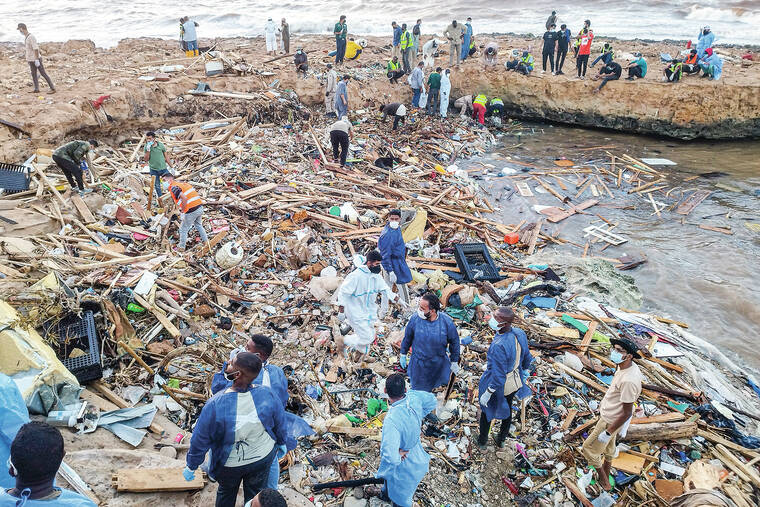Libya investigates dams’ collapse after a devastating flood last weekend killed more than 11,000
DERNA, Libya — Libyan authorities have opened an investigation into the collapse of two dams that caused a devastating flood in a coastal city as rescue teams searched for bodies on Saturday, nearly a week after the deluge killed more than 11,000 people.
It’s unclear how such an investigation can be carried out in the North African country, which plunged into chaos after a NATO-backed uprising toppled longtime dictator Moammar Gadhafi in 2011. For most of the past decade, Libya has been split between rival administrations — one in the east, the other in the west — each backed by powerful militias and international patrons.
ADVERTISING
One result has been the neglect of crucial infrastructure, even as climate change makes extreme weather events more frequent and severe.
Heavy rains caused by Mediterranean storm Daniel caused deadly flooding across eastern Libya last weekend.
The floods overwhelmed two dams, sending a wall of water several meters high through the center of Derna, destroying entire neighborhoods and sweeping people out to sea.
More than 10,000 people are missing, according to the Libyan Red Crescent. Six days on, searchers are still digging through mud and hollowed-out buildings, looking for bodies and possible survivors. The Red Crescent has confirmed 11,300 deaths so far.
Claire Nicolet, who heads the emergencies department of the Doctors Without Borders aid group, said that rescuers found “a lot of bodies” on Friday and were still searching.
“It was a big number … the sea is still ejecting lots of dead bodies unfortunately,” she told The Associated Press.
She said major aid efforts were still needed, including urgent psychological support for those who lost their families. She said the burial of bodies is still a significant challenge, but there has been progress in coordinating search and rescue efforts and the distribution of aid.
Authorities and aid groups have voiced concern about the spread of waterborne diseases and shifting of explosive ordnance from Libya’s recent conflicts.


